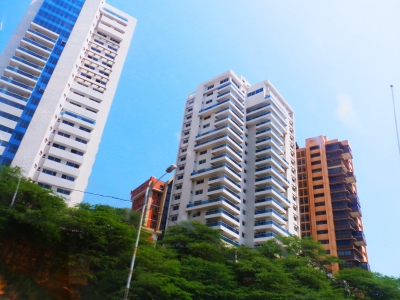The Battle of Lake Maracaibo also known as the "Naval Battle of the Lake" was fought on 24 July 1823 on Venezuela's Lake Maracaibo between fleets under the commands of Republican Admiral Jos Prudencio Padilla and royalist Captain ngel Laborde.
The engagement was won by the Republican forces, and was the last battle of the Venezuelan War of Independence and the larger Spanish American wars of independence. The Republican ships were part of the armed forces of Gran Colombia led by Simn Bolvar.
The Battle of Carabobo of 1821 is usually seen in the historiography as the culminating battle for Venezuelan independence. However, some historians point out that if the Battle of Lake Maracaibo had been a victory for the Royalist forces, the Spanish Crown might have been able to establish a new front in Western Venezuela from which to attack the Republican forces stationed in Venezuela. As a result of the defeat, the Spanish did not send any reinforcing regiments to Venezuela, and finally accepted Venezuelan independence as a result of this second decisive Republican victory, although it did not formally recognise the new nation's independence for more than a decade afterward.
The 24 July is a regional holiday of Zulia State in Venezuela, and as it is also the date of the birth of Simn Bolvar, is also marked as Navy Day in both Venezuela and Colombia.
Maracaibo ( MARR-ə-KY-boh, Spanish: [maɾaˈkajβo] (listen); Wayuu: Marakaaya), historically known as Neu-Nuremberg, is a city and municipality in northwestern Venezuela, on the western shore of the strait that connects Lake Maracaibo to the Gulf of Venezuela. It is the second-largest city in Venezuela, after the national capital, Caracas, and the capital of the state of Zulia. The population of the city is approximately 2,658,355 with the metropolitan area estimated at 5,278,448 as of 2010.
Maracaibo is nicknamed "The Beloved Land of the Sun" (Spanish: La Tierra del Sol Amada).
Maracaibo is considered the economic center of the western part of Venezuela, owing to the petroleum industry that developed in the shores of Lake Maracaibo. It is sometimes known as "The First City of Venezuela", for being the first city in Venezuela to adopt various types of public services, including electricity, as well as for being located adjacent to shores of Lake Maracaibo, where the name of Venezuela allegedly originates.Early indigenous settlements around the area were of Arawak and Carib origin. Maracaibo’s founding date is disputed. There were failed attempts to found the city—in 1529, by Captain Ambrosio Ehinger, and in 1569, by Captain Alonso Pacheco. Founded in 1574 as Nueva Zamora de la Laguna de Maracaibo by Captain Pedro Maldonado, the city became a transshipment point for inland settlements after Gibraltar, at the head of the lake, had been destroyed by pirates in 1669. It was not until the first decades of the 17th century that the first town was settled. Petroleum was discovered in 1917, leading to a large increase in population from migration.
Maracaibo is served by La Chinita International Airport. The General Rafael Urdaneta Bridge connects Maracaibo with the rest of the country. The La Chiquinquirá Church catholic church is within the city.

1823Jul, 24
In Maracaibo, Venezuela the naval Battle of Lake Maracaibo takes place, where Admiral José Prudencio Padilla, defeats the Spanish Navy, thus culminating the independence for the Gran Colombia.
Choose Another Date
Events on 1823
- 2Jul
Portuguese rule in Brazil
Bahia Independence Day: The end of Portuguese rule in Brazil, with the final defeat of the Portuguese crown loyalists in the province of Bahia. - 24Jul
Chile
Slavery is abolished in Chile. - 24Jul
Battle of Lake Maracaibo
In Maracaibo, Venezuela the naval Battle of Lake Maracaibo takes place, where Admiral José Prudencio Padilla, defeats the Spanish Navy, thus culminating the independence for the Gran Colombia. - 22Sep
Golden plates
Joseph Smith states he found the golden plates on this date after being directed by God through the Angel Moroni to the place where they were buried. - 12Oct
Raincoat
Charles Macintosh of Scotland sells the first raincoat.

 English
English  español
español  français
français  português
português  русский
русский  العربية
العربية  简体中文
简体中文 